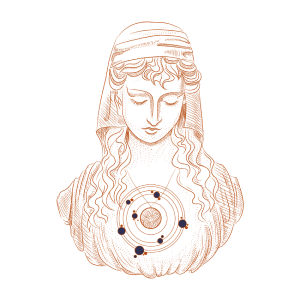Joshua from Becoming Minimalist just posted an excellent article on what he learned about minimalism on his trip to Poland. It strongly resonates with me, not just because it’s about my home country. After decades of extreme scarcity, minimalism seems quite abstract for most Polish people. At the same time, we need it much more than we might think.
I was born in Poland in 1988, a year before the Berlin Wall collapsed. This makes me the first generation raised in a free country, with all sorts of goods available in a free market. My parents, on the other hand, spent their entire youth under communist regime. For years food was only available with ration stamps, and people would queue up for hours to get some.
Growing up, I wondered what made my parents keep certain things in our crowded apartment. They never gave away a single book – even encyclopaedias outdated by decades. There was a yarn set older than me in one of the closets, which my mum intended to use – someday, when she retires. She hasn’t retired yet.
With time I realised minimalism is a first world privilege.
If tomorrow there might not be even bread or toilet paper in stores, you learn to buy things just in case – everything you can, as much as you can.
In communism people didn’t have much, so they clung to the few things they did. Their lives literally depended on these precious things. When you grow up like this, it’s hard to change this mindset later in life, even when supermarket shelves are full of everything you’ll ever need (and more).
In Poland we’re still nowhere near the wealth of America or Western Europe. There’s still many families struggling with serious poverty, unable to afford the most basic commodities. But even those of us who live comfortable lives always compare Poland with just the few richest countries. In result, we’re quite dissatisfied with what we have.
As a kid, I watched many folks fantasise about America, the land of abundance and endless opportunities. Growing up in scarcity, we used to believe that having more would solve all of our problems, or at least the most.
We didn’t know abundance also has its dark side. Most of us never had a chance to experience it. “Money doesn’t buy happiness” is only true if you have enough food to feed your family. If you don’t, money does in fact buy you a lot of it.
Even though minimalism is a privilege, it’s also a necessity.
Nowadays, most of us luckily have our basic needs met. This means we have a choice to fix our relationship with money and possessions, before we get caught up in wanting more and more.
It’s tempting to think that we can only be happy once we reach the standards of living of our peers in the West. But once we get to know them and their daily struggles, we soon learn that these people in America or France living the live of our dreams are as dissatisfied with what they have as we are.
Polish folks hardly contemplate that 80% of the world can only dream of the luxuries we take now for granted. Looking up to those few countries richer than us, it’s easy to lose track of how much we already have.
Even though we’re not that caught in overconsumption yet, now is the best time for us to consider minimalism. It’s a great way to make sure than in the search of true happiness, we don’t end up instead with just a pile of stuff.

One response to “Post-communist minimalism – what if we stopped chasing things before we have it all?”
Lovely response to Joshua’s piece! I’m so glad to have the perspective of a young person in Poland to go with the article.